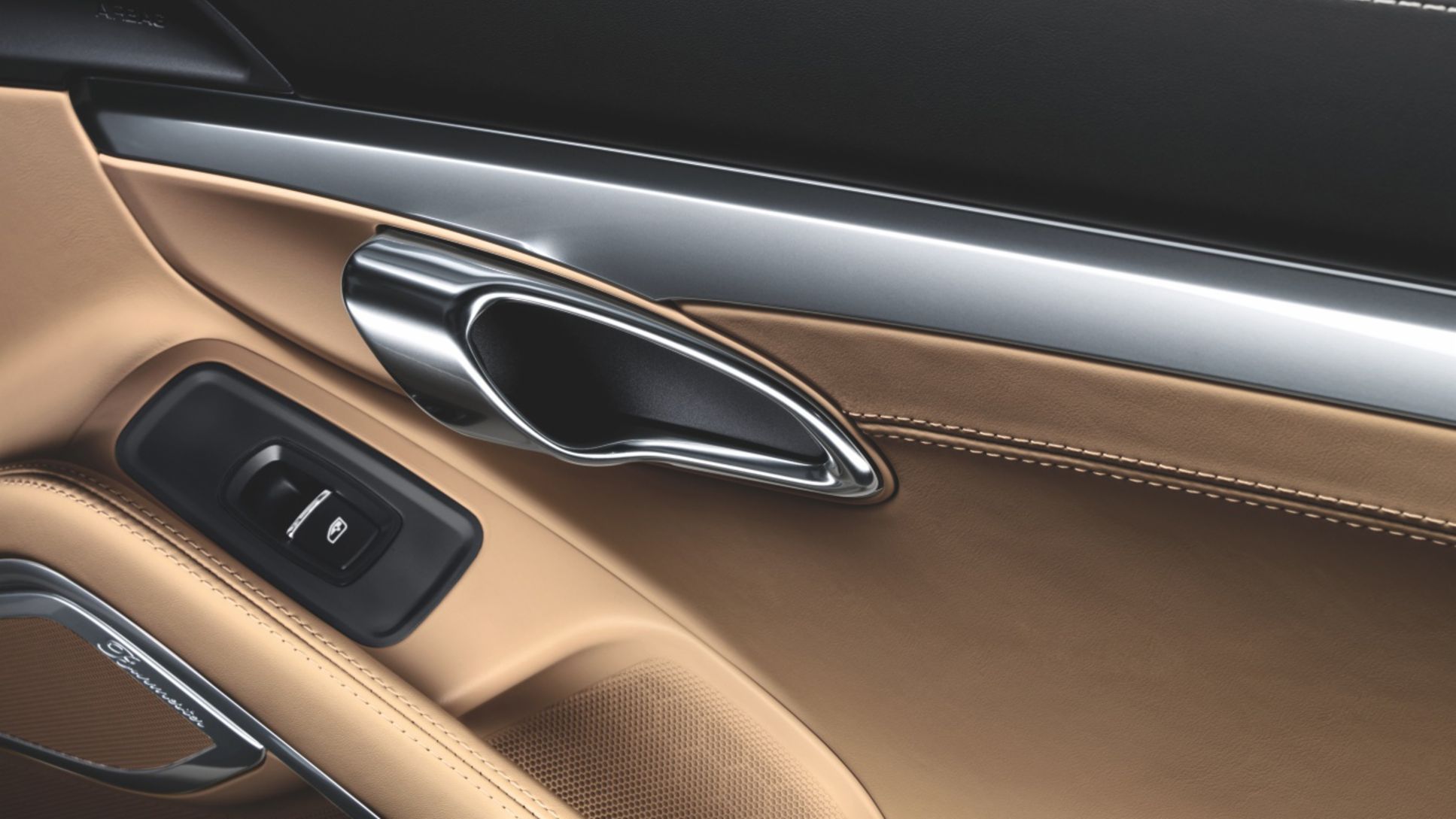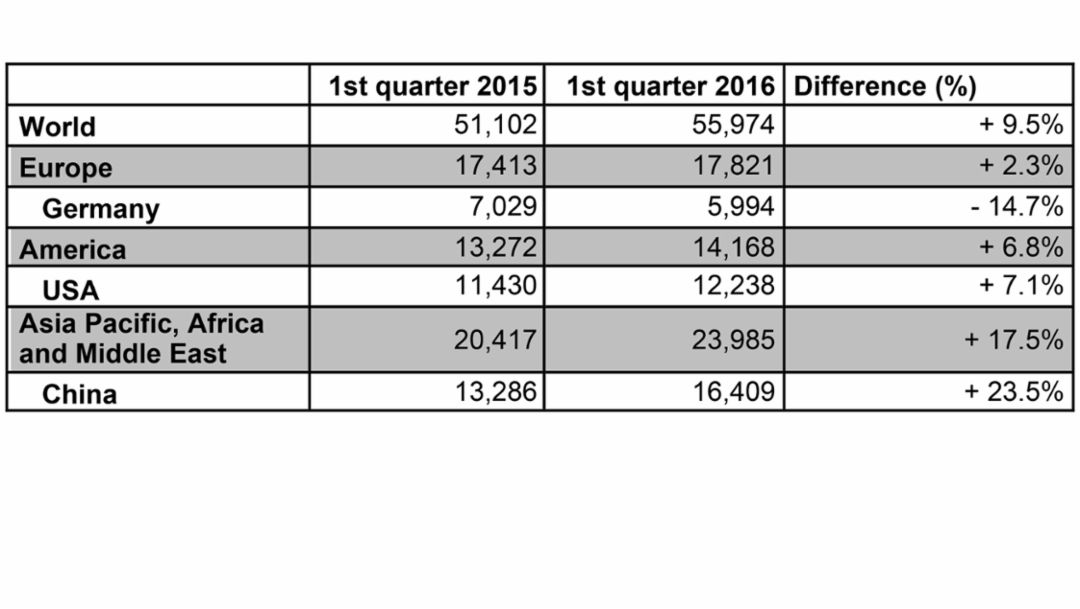The main growth drivers are the Macan model series and sales success on the Chinese market (+23.5 per cent). For Detlev von Platen, Member of the Executive Board for Sales and Marketing, these figures demonstrate the high customer satisfaction and the attraction of the brand. He emphasised that happy customers and safe jobs are more important to Porsche than sales volumes. "We do not measure our success by record sales alone", von Platen says.
The SUV models remain a driver for success in the first quarter: with 21,576 deliveries the Macan is currently the most popular Porsche. Compared with the same period last year the youngest member of the model family saw an increase of around 20 per cent, closely followed by the Cayenne with 17,598 vehicles (+8 per cent). There was also a marked increase in the demand for the two-door Cayman and Boxster. Despite the approaching model change to the 718 Boxster and 718 Cayman, both mid-engine sports cars recorded two-digit growth rates. The Boxster was handed over to customers 3,029 times (+23 per cent), while 2,822 Cayman were delivered (+27 per cent). The 911 continues to be as popular as ever: with a total of 7,711 new vehicles delivered, the sports car icon maintains the high level of the same period last year.
China was once again the strongest single market in the first quarter of 2016: with deliveries of 16,409 vehicles the Chinese market ranks ahead of the USA (12,238 deliveries). Europe maintains the high level of the previous year. The German market is the only market to lag behind. "However, the orders received in Germany are an optimistic sign", says von Platen.
Deliveries
Consumption data
718 Boxster: Combined fuel consumption: 7.4 – 6.9 l/100 km; CO2 emissions: 168 - 158 g/km
718 Cayman: Combined fuel consumption 7.4 – 6.9 l/100 km; CO2 emissions 168 - 158 g/km





